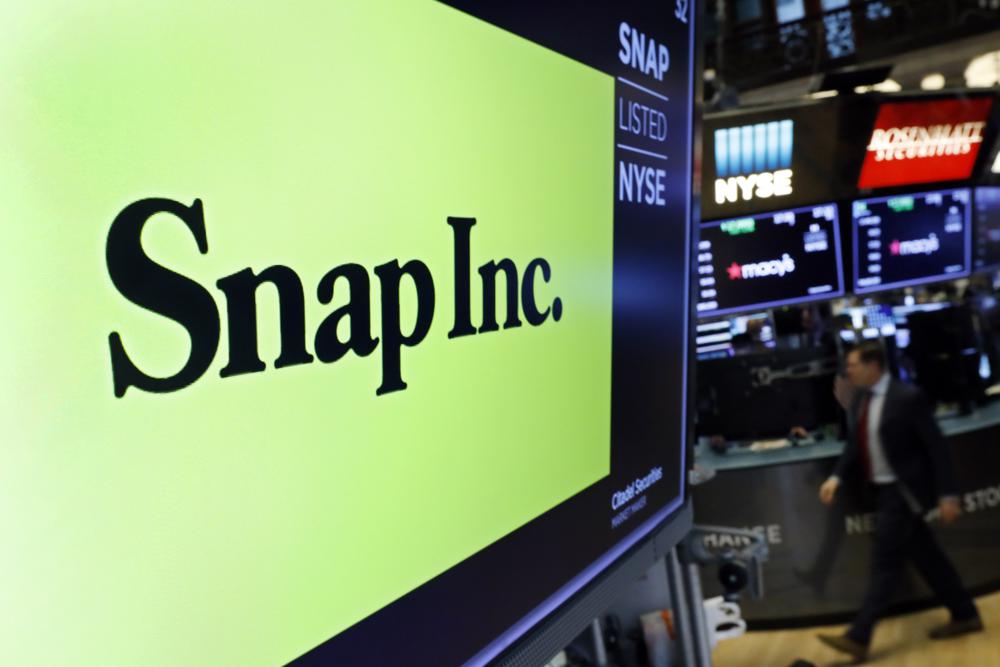Social media has had a rough 2022 with lingering questions about advertising spending, political ads and a $44 billion takeover of Twitter that may or may not be happening, depending on which Elon Musk tweet you read.
Then late Monday Snap, which runs the Snapchat app that features vanishing messages and video special effects, issued a rather dire profit warning, saying that “the macroeconomic environment has deteriorated further and faster than anticipated,” since just last month.
Social media companies are competing for the same pool of advertising money that is increasingly under threat from spiking inflation and also changes at Apple Inc. that can restrict the information social media platforms can collect on users, a big selling point for advertisers.
Shares of Snap Inc. plunged 43% Tuesday.
And with Wall Street unsure if the company is an outlier or a canary in the social media coal mine, shares of Facebook parent Meta Platforms, Twitter, Alphabet and Pinterest all slumped alongside it.
Snap late Monday said it now foresees revenue and adjusted earnings before interest, taxes, depreciation, and amortization coming in below the low end of its prior forecasted range.
Justin Patterson of KeyBanc Capital Markets who follows social media warned investors not to read too much into Snap’s profit warning, calling it “a cautionary flag but not one to sound the alarm on the entire sector.”
“We believe it is better to view each channel in the context of the nature of advertisers and verticals, guidance history, revenue growth vectors, and investments to assess the level of risk to revenue and profitability from the macro environment,” Patterson wrote.
The volatility comes in a week when both Meta Platforms and Twitter hold their annual meetings with shareholders, with a particularly intense focus on what could be a lively gathering for Twitter. Elon Musk has hit the pause button on the buyout, saying he needs more information on how many “spam bots” the social media platform truly has.
A note from Dan Ives, who follows social media at Wedbush, summarizes the confusion.
“We believe its currently a 60% chance that Musk tries to walk and use this spam account issue as the scapegoat to get out of the deal and a 40% chance Twitter’s board and Musk come to a new deal price over the coming weeks,” he wrote in a note to clients.
Twitter’s stock fell 5.6% Tuesday.
Adding to the social media tumult is Facebook’s parent company Meta. The company said that it will start publicly providing more details about how advertisers target people with political ads just months ahead of the U.S. midterm elections.
Meta is particularly sensitive to the changes made at Apple and is now contending with a civil lawsuit against its chief, Mark Zuckerberg. On Monday the District of Columbia sued Zuckerberg, seeking to hold him personally liable for the Cambridge Analytica scandal, a privacy breach of millions of Facebook users’ personal data that became a major corporate and political scandal.
Shares of Meta Platforms Inc. closed Tuesday down 7.6%.
Alphabet Inc., the parent company of Google, tumbled 5%. Shares pf Pinterest Inc. slumped by 23.6%.
(AP)











